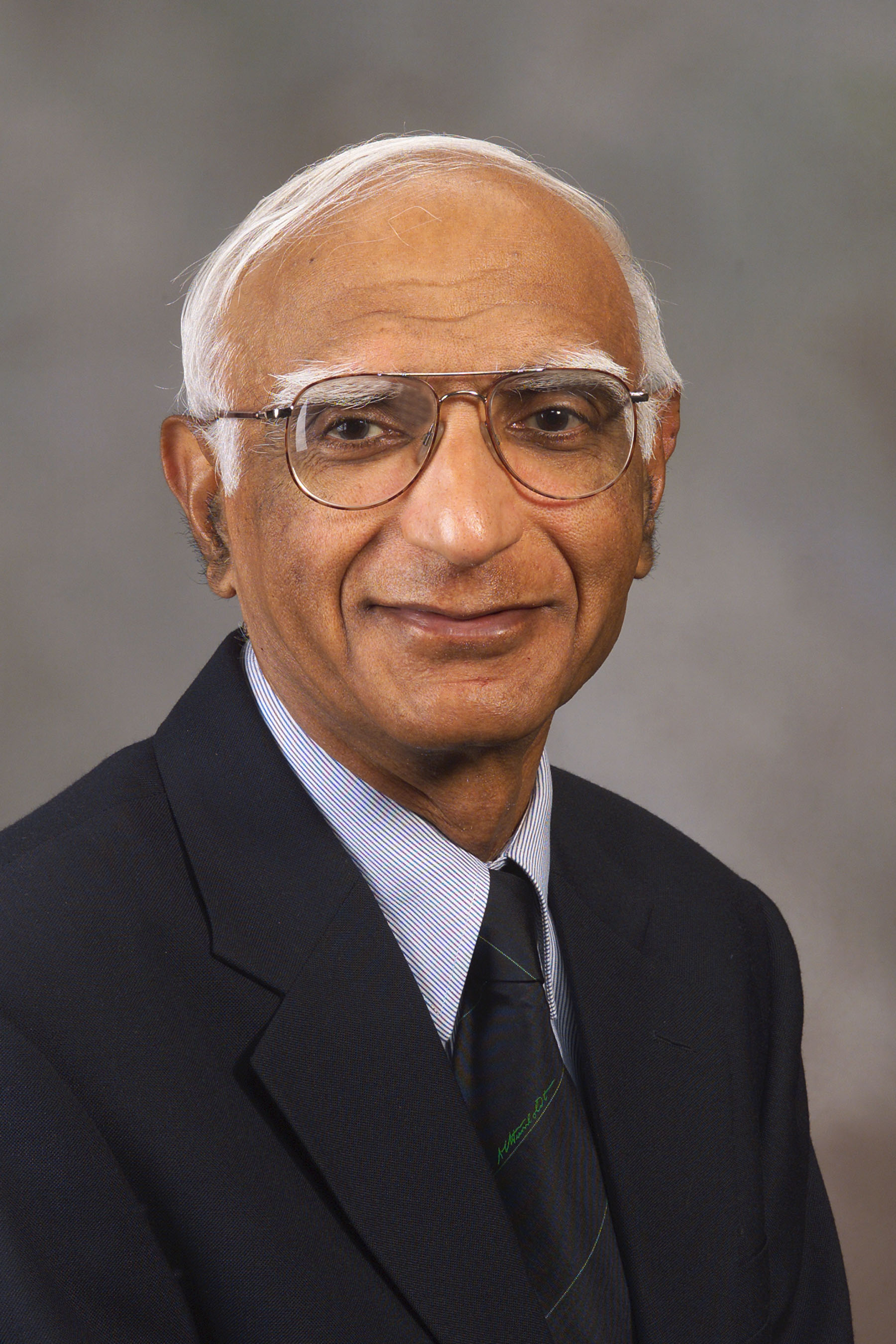Engineering professor Romesh Batra earns State Council of Higher Education for Virginia teaching award

Romesh C. Batra, Virginia Tech professor of engineering science and mechanics, is a 2010 recipient of the Virginia Outstanding Faculty Award sponsored by the State Council of Higher Education for Virginia (SCHEV) and Dominion, an energy company based in Richmond, Va.
Batra, who holds Virginia Tech’s Clifton C. Garvin Professorship, is world renowned for his work on the strength of materials. His efforts have earned him numerous awards including the prestigious Alexander von Humboldt Award in 1992 for his pioneering work in developing an understanding of the failure of materials due to extreme loads.
He also won the 2009 Engineering Science Medal from the Society of Engineering Science (SES) for his singular work on material failure, the 2009 Lee Hsun Research Award from the Chinese Academy of Sciences for his work on understanding material behavior under explosive loads, and the 2000 Eric Reissner Medal from the International Congress of Computational and Engineering Society for his fundamental work in simulating the penetration of a missile into a tank wall.
The addition of the SCHEV teaching award is a special honor for Batra.
“I developed a passion for teaching and sharing knowledge with others during my high school and college days,” Batra recalled. In order to attend college, he lived with his single elder brother in a large city in India rather than with his parents in their small hometown, since the nearest college was 15 miles away from his parents’ house. To help with his expenses, he tutored his neighbor’s children in return for home cooked meals, which was “the only compensation they could afford,” he added.
The plucky teenager attended India’s Thapar College of Engineering as an undergraduate student. “With a lot of luck, and without taking TOEFL and GRE examinations, I received a graduate research assistantship from the University of Waterloo, Canada, to pursue studies for my master’s degree,” he said. His interest in continuum mechanics propelled him to apply to the Johns Hopkins University for his doctoral studies.
“That was one of the most fortunate and riskiest decisions of my life. … My training at Hopkins instilled in me a love of research and discovery to the point that I abandoned my goal of returning to Thapar College and made the USA my home,” Batra explained.
For the past 35 years, including his most recent 15 years at Virginia Tech, Batra has challenged students in his classroom to analyze real world problems. Based on students’ evaluation of instructors’ teaching, he is always on Virginia Tech’s dean’s list of excellent teachers. Anonymous excerpts from students’ evaluations include such phrases as: “He keeps explaining until everyone understands the idea, excellent knowledge of the subject matter, excellent communication of principles, very respectful towards students, and one of the greatest professors I have ever had.”
Working with his students, Batra has assisted in the development of numerous new designs and products. For example, he has led teams in the improved design of different types of armors such as bullet proof vests, tank walls, and shields to protect vehicles against an improvised explosive device generated blast. He has also characterized carbon nanotubes for designing lighter and more efficient fuel planes that he believes will surpass the recent unveiling of Boeing’s new 787 Dreamliner aircraft.
He has also studied micro-electro-mechanical systems that open up air bags in a car crash upon impact and smart materials that monitor their own vibrations and make car rides quieter and smoother.
“My classroom philosophy in sharing knowledge with students has been to treat them as colleagues, stress fundamentals, and challenge them to apply basic concepts to real-world problems,” Batra said.
“If we are asked to choose the three most distinguished researchers in the area of engineering mechanics who have made the most impact in the field during the past two decades, Dr. Batra, in my opinion, will make this list. His research shows creativity, relevance and diversity,” said Inderjit Chopra, the University of Maryland’s Alfred Gresso Professor.
SCHEV is the commonwealth’s coordinating body for Virginia’s system of higher education. The agency provides policy guidance and budget recommendations to the governor and General Assembly, and is a resource for information on higher education issues and Virginia colleges and universities. Photos and information about each of this year's recipients can be found online.
The Dominion Foundation is the philanthropic arm of Dominion. Headquartered in Richmond, the company serves retail energy customers in eleven states. The Dominion Foundation donates more than $17 million annually to non-profit organizations in states where the company does business. For more information about Dominion, visit the company’s Web site at www.dom.com.
- Read related Virginia Tech News story: "Engineering professor Maura Borrego earns State Council for Higher Education for Virginia Rising Star Award"




